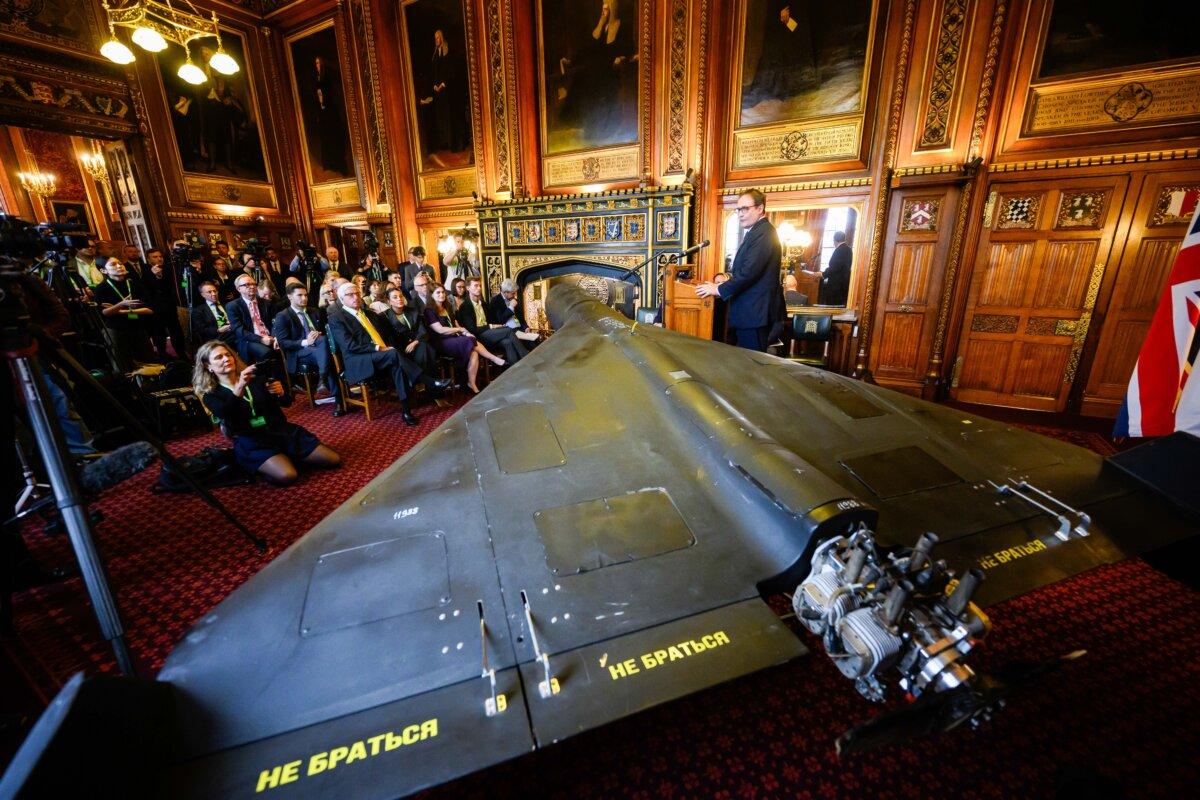By Victoria Friedman
Drones spotted flying near a military base used to house U.S. nuclear weapons could be part of a spying operation, Belgian Defense Minister Theo Francken said on Nov. 3.
Francken confirmed during an interview on La Première radio that drones were sighted over the Kleine-Brogel military base for three days since Oct. 31.
He said the first day involved “small drones to test radio frequencies,” while “on Saturday and Sunday it involved large drones for observation and destabilization.” The minister added that he believes those piloting them sought to “create panic in Belgium.”
“It looks like an espionage operation. By whom, I don’t know. I have some ideas, but I’m going to be cautious,” he told the public broadcaster, according to a translation of his remarks.
Russia has been blamed for incursions into European airspace in recent months, notably in Poland and Estonia, though Moscow has denied NATO’s accusations of repeated airspace violations.
Francken would not immediately attribute blame for the incidents, saying, “The investigation is ongoing at the moment; I’m going to be very cautious.”
Not the Work of Amateurs
The minister also ruled out the possibility that the incident was the work of amateurs or part of a prank, revealing that the operation showed a level of sophistication.
He told La Première that jamming equipment was used to attempt to disrupt its radio signal, but that it had proved ineffective.
“The jammer didn’t work because they tested our radio frequency and changed it. They have their own frequencies. An amateur wouldn’t know how to do that,” he said.
Drone sightings over Berlin Brandenburg Airport in Germany also led to flights being suspended for around two hours on the night of Oct. 31. Munich Airport was forced to close early last month due to drone sightings.
Asked why it was not possible to shoot the drones down, Francken said: “When they’re over a military base, we can shoot down the drones. When they’re right next to it, we have to be very careful because if they fall on a house, a car, or a person, that’s another story.”
He added that there were legal issues. “It’s not entirely clear. We need to clarify the legal basis,” the defense minister said.
Four Years Behind
Francken also addressed the state of Belgium’s defense strategies, saying its drone-repelling capabilities are four years behind where they should be.
“We’re chasing the threat,” Francken told La Première.
“We should have bought anti-aircraft systems to combat drones five or 10 years ago. NATO has been saying this for years. I’ve been minister of defense for nine months … we’re four years behind. I’ve been trying to accomplish a great deal for the past nine months. ”

Last month, the European Commission said that Europe must prepare to combat new forms of warfare, including sabotage of undersea cables, cyberattacks, and drone incursions, which Commission President Ursula von der Leyen labeled “hybrid warfare.”
NATO describes hybrid warfare as a fusion of conventional and unconventional means, including subversion or destabilization of the adversary and attacks conducted in ways that make identifying those responsible difficult.
Hybrid warfare often occurs in the gray zone, the threshold below conventional war, which can include cyberattacks, attacks on critical infrastructure, and espionage.
“We must not only react; we must deter because if we hesitate to act, the gray zone will only expand,” von der Leyen said.
European Self-Reliance
On Oct. 16, von der Leyen unveiled proposals for four flagship defense projects, including a drone wall and fortification of Europe’s eastern border, as part of measures to boost defense by 2030.
Defense experts have said that the European Union’s rapid move to counter threats could redefine how Europe defends its airspace and strengthen its role within NATO’s framework.
Bartosz Grodecki and Maciej Romanow, experts from the security team at Polish think tank Sobieski Institute, recently told The Epoch Times that Brussels’s plans show “that Europe is not passively relying on the United States, but actively investing in its own defense.”
“This increases Europe’s credibility in Washington and demonstrates a genuine commitment to burden sharing,” they said.
This shift “changes Europe’s position from being a security receiver to becoming a security provider,” Grodecki and Romanow stated.
“For the United States, this means a more balanced partnership in which European allies take on part of the financial and technological burden.”






